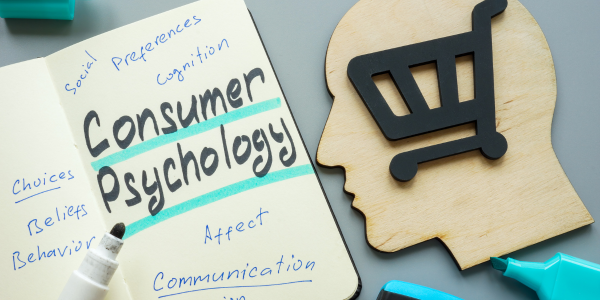In the dynamic landscape of marketing and advertising, understanding consumer psychology is a key to unlocking success for businesses in the United Kingdom. The ability to connect with consumers on a deeper level, tapping into their emotions, needs, and desires, can significantly impact the effectiveness of marketing campaigns. In this blog, we explore the most effective ways to leverage consumer psychology.
Communicate the value you are adding: Marketing does not need to be about consumption linked to an aspirational life style, marketing communication should be about the value you can add to your target audience to make their life better. This value may be linked to helping solve problems for your target audience or it can be linked to tackling issues related to sustainability or both. According to a recent report by Deloitte entitled “What consumers are doing to adopt a more sustainable lifestyle – 2023.
In addition to adopting money-saving sustainable behaviours, more consumers are taking into consideration durability and repairability when making a purchase in 2023, and whether products are labelled as responsibly sourced or manufactured, or support biodiversity.
Weaving in the value you are adding to your targets audience and sustainability will help to position you as an organisation that truly understands their customers and is committed to tackling big issues.
Emphasise Emotional Appeal: Consumer decisions are often driven by emotions, and savvy marketers know how to tap into these feelings. Craft your marketing messages to evoke emotions that resonate with your target audience. Whether it’s joy, nostalgia, or a sense of belonging, emotional appeal creates a lasting impression and fosters a stronger connection between consumers and your brand.
Understand Cultural Nuances: The UK is a diverse nation with a rich tapestry of cultures and traditions. Tailoring your marketing strategies to reflect cultural nuances is essential for building trust and resonance with your audience. Recognise regional differences, incorporate cultural references, and use language that resonates with specific demographics to ensure your message is well-received.
Leverage Social Proof and Peer Influence: Humans are social beings, and their decisions are often influenced by the actions and opinions of others. Utilise social proof in your marketing efforts by showcasing positive reviews, testimonials, or user-generated content. Additionally, emphasise the popularity of your products or services to tap into the psychological phenomenon of conformity, where people are more likely to follow the crowd.
Utilise Cognitive Biases: Understanding cognitive biases can provide valuable insights into consumer decision-making processes. For example, the anchoring bias involves relying heavily on the first piece of information encountered when making decisions. Use this to your advantage by strategically presenting what you feel is the most compelling part of your value offer. Other biases, such as the confirmation bias, can be addressed by providing evidence that supports the consumer’s pre-existing beliefs.
Personalise Customer Experiences: Personalisation goes beyond addressing customers by their first names. Leverage data to understand your customers’ preferences, purchase history, and behaviour. Tailor your marketing messages, product recommendations, and promotions to create a personalised experience. This not only enhances customer satisfaction but also increases the likelihood of repeat business.
Optimise for Visual Impact and Accessibility: Humans are visual creatures, and the visual elements of your marketing materials play a crucial role in consumer perception. Use high-quality images, colour psychology, and eye-catching design to capture attention. Visual appeal can influence emotions and attitudes towards your brand, making your marketing more memorable. However be sure to check your visuals whether they be digital or print to make sure they are accessible to all users. A good accessibility checker is Wave
In the competitive landscape of UK businesses, mastering consumer psychology is a strategic advantage. By understanding the emotional triggers, cultural nuances, and cognitive biases that influence consumer behaviour, businesses can create more impactful marketing and advertising campaigns. Ultimately, the goal is to forge a strong connection with consumers, driving brand loyalty and sustainable success in the dynamic market.


Recent Comments